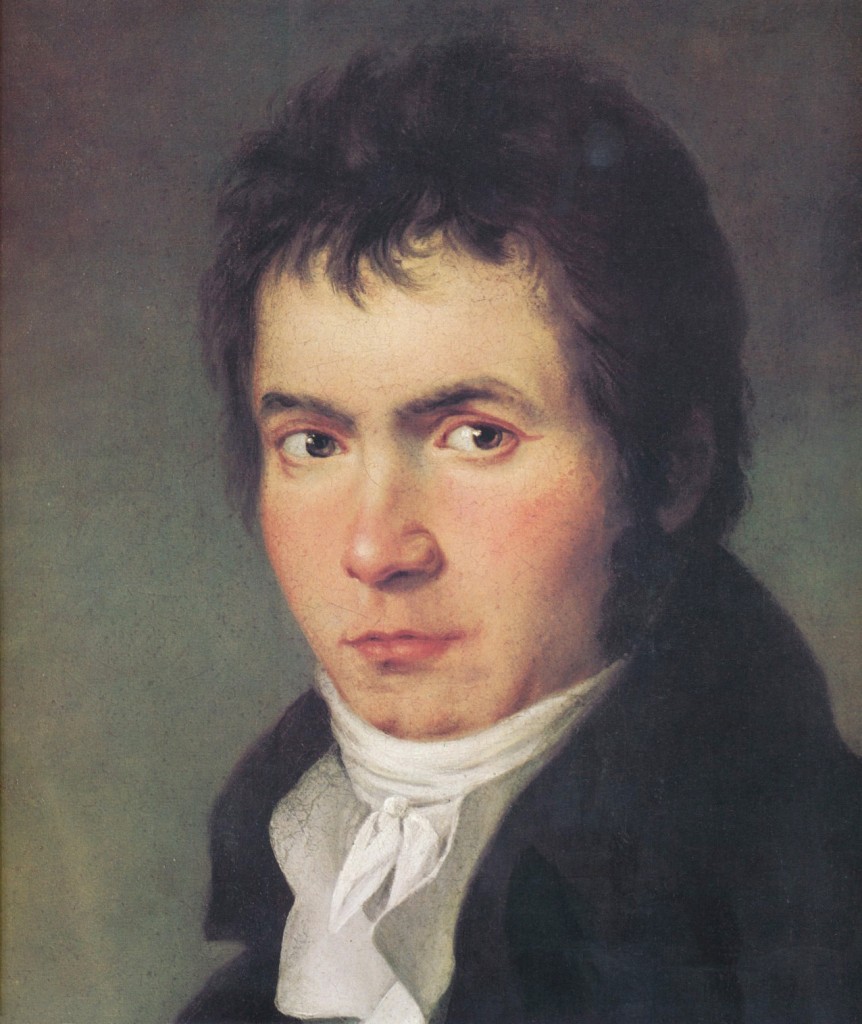Jerusalem Quartet launches CMS Beethoven cycle in graceful style

The first three quartets from Beethoven’s Op.18 were performed by the Jeruaslem Quartet Sunday, presented by the Chamber Music Society of Lincoln Center.
This season, the Chamber Music Society of Lincoln Center has been presenting a bit of innovative programming consisting of entire string quartet cycles. These have given listeners the chance to hear gifted quartets play the worthwhile and lesser known work of composers like Alexander Zemlinsky and Carl Nielsen.
Now, in the middle of winter, CMS has expanded this idea into something both grander and more familiar: a complete Beethoven string quartet cycle. These are, of course, some of the central and best-known works in the whole of the classical tradition, and a Beethoven quartet cycle is presented, in one way or another, almost every year in New York City.
Still, the music is undeniably great, and CMS has added a curve with several different groups sharing the performing honors. Opening the series Sunday evening, playing the first three Op. 18 Quartets, was the Jerusalem Quartet, themselves also in the middle of delivering a Bartók cycle for CMS.
The Jerusalem Quartet is one of the outstanding ensembles in classical music, with an exceptionally polished sound, precise technique, and deep musicality. The Op. 18 pieces are a clear specialty; they issued a fine recording of them last year on the Harmonia Mundi label and will be playing all six in this CMS series. Sunday, it was the first three quartets, played in the order of No. 3, No. 1, and No. 2 after intermission.
These were fine, elegant, and intelligent performances. Jerusalem played the music with deceptively simple clarity and a complete lack of manner. The immediate focus was on the beautiful, singing sound the quartet produced. Just under that lovely and translucent surface, the quartet maintained an equipoise between the music’s Haydnesque form and structure and Beethoven’s unique, explosive energy.
The latter is coiled primarily in the third movements of each piece, which are made on the minuet and trio model but which Beethoven marked either Allegro or Scherzo. Off-beat accents push the pulse around, and in later compositions—like the Symphony No. 3—Beethoven would use this technique to ignite a powder keg.
In the Op. 18 quartets, though, it’s more of a fascinating tease, a signature. Jerusalem played these rhythms with perfectly judged emphasis, the right amount for the music, but not so much as to try and push the pieces into Beethoven’s later career. The Op. 18 quartets are adamantly in the classical style.
Another reward of close listening to their playing was variety—repeats were not just a way to mark out structure, but an opportunity to add some wrinkles from the first time around. These moments were quick—a slight bit more of sustain here, an emphasis on a syncopation there—but were interesting and satisfying.
The concert was full of such intriguing details: the warm and witty playing in the Andante of Quartet No. 3; the stimulating emphasis on the dialogue between first violin and cello in the opening movement of Quartet No. 1; the unexpected but terrific margin of the change of pace in the Scherzo of Quartet No. 2.
The entire performance of Quartet No. 2 was notably graceful, especially in the slow movement. The artful playing of the Scherzo was particularly memorable, and the sleek excellence of the final movement brought much of the full crowd to their feet.
The Jerusalem Quartet plays the final three Beethoven Op. 18 quartets 7:30 p.m. Tuesday. The CMS Beethoven Cycle continues through February 21, with concerts from the Miró, Orion, Escher, and Danish String Quartets chambermusicsociety.org






